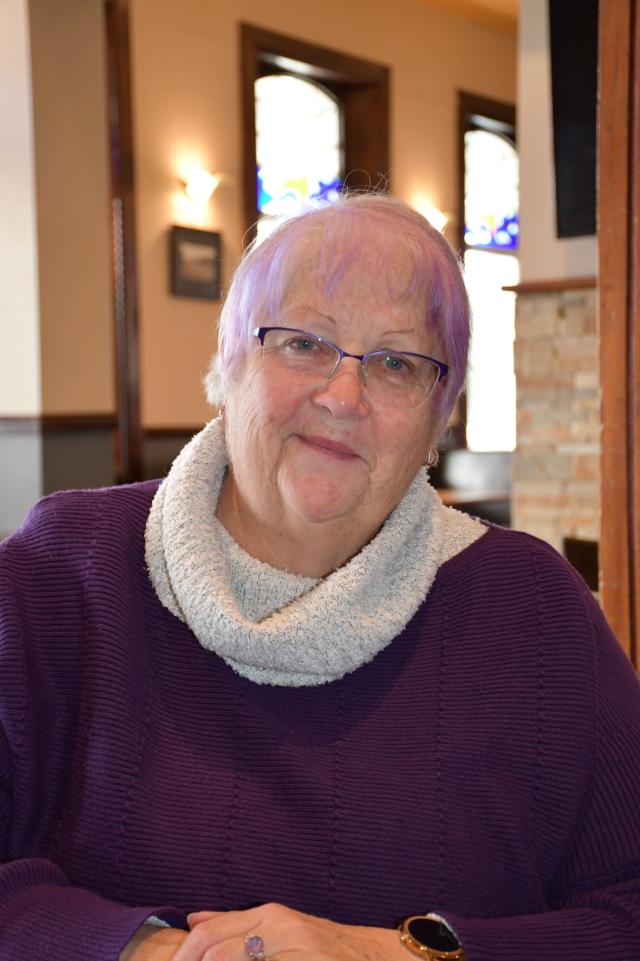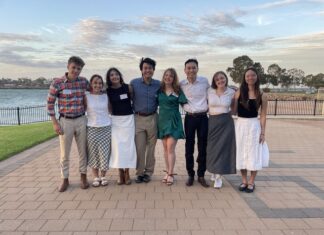PORT PIRIE – Deb Tregilgas is a dedicated secondary school teacher who also proudly represents the Soroptimists as South Australian president.
At the Premier’s Economic Forum held at Memorial Oval’s Sports Precinct earlier this year she boldly fronted Premier Peter Malinauskas to ask when a Royal Commission would be announced into family, domestic and sexual violence.
She is outspoken but manages the fine balance in the community of just the right amount of vocal advocacy while being quiet behind the scenes to support victims and survivors while trying to lift up women and girls so that they do not fall victim to violence.
“It is part of our ethos at Soroptimists to empower, educate and enable so that women can support themselves,” Ms Tregilgas said.
“It’s proven that when you improve the situation for women, it improves the situation for the community around them.
“When you improve the situation of one woman, it improves the situation of that one home, it improves the community and when you do that you improve a society.
“It’s the power of supporting and stabilising the lives of women and especially in communities where they are not necessarily considered equals.
“Even in this day and age when we think that in Australia everyone has the same rights, look at the situation in the United States where there are politicians who actively say that women cannot choose what happens with their bodies, and that’s in a country which considers itself the most powerful of first world countries.”
Ms Tregilgas said she works hard to educate students about being aware of where information was coming from, particularly online, and reminded them the dominance of media from the United States meant that search results would often deliver them information that was not focussed on Australian sources.
“I think we will see a drop off in the number of people in Australia who will actually vote and an increase in donkey votes (votes that follow the order in which candidates’ names appear on the ballot paper) and invalid votes,” she said.
“They do not understand our voting system and in my work with special needs kids I worry what will happen.
“They can’t read the instructions; what accommodations will be made for them?
“It’s a democratic right, and that’s a loss of a right and it’s a powerful little group that desperately needs to have a voice and needs to have somebody that’s prepared to represent them.
“It’s a different glass ceiling; we’ve cracked it for women but not broken it.”
Ms Tregilgas is full of admiration for former Senator now Commissioner Natasha Stott Despoja, who began statewide consultations in July for South Australia’s Royal Commission into Domestic, Family and Sexual Violence.
She said Ms Stott Despoja was a ‘great choice’ for the difficult role and was looking forward to seeing the process unfold.
“It’s not just about our State, we have to consider National decisions as well,” Ms Tregilgas said.
“One of the things we know about people who abuse is that when they run out of support, resources and blind eyes here they move to another place.
“In the days before the internet, that was just the next district or the next council area but now they move to another State.”
She believes the State boundaries for issues such as domestic and family violence and child abuse and neglect should be abolished.
“If you’re charged with any kind of violence against persons, we need to know where you are.”
She said lengthy delays in the court systems gave perpetrators time to move and have the ability to continue offending.
“But it’s just like teachers, doctors, service workers, carers; there just isn’t enough of us,” Ms Tregilgas said.
“But it needs to be easier for us to go to authorities and say, hey you need to step in.”
She said that one strategy was to remember that if you see something or hear something, report it.
“Call someone and say, there’s something happening,” she said.
“How many times have you heard in the aftermath that people knew?
“I think for the older generation, people didn’t talk about what was happening at home outside the home but they also would go and talk to the person, there was an old fashioned way of dealing with it.
“So many people are so isolated now and you need to go to an outside agency for help.”








